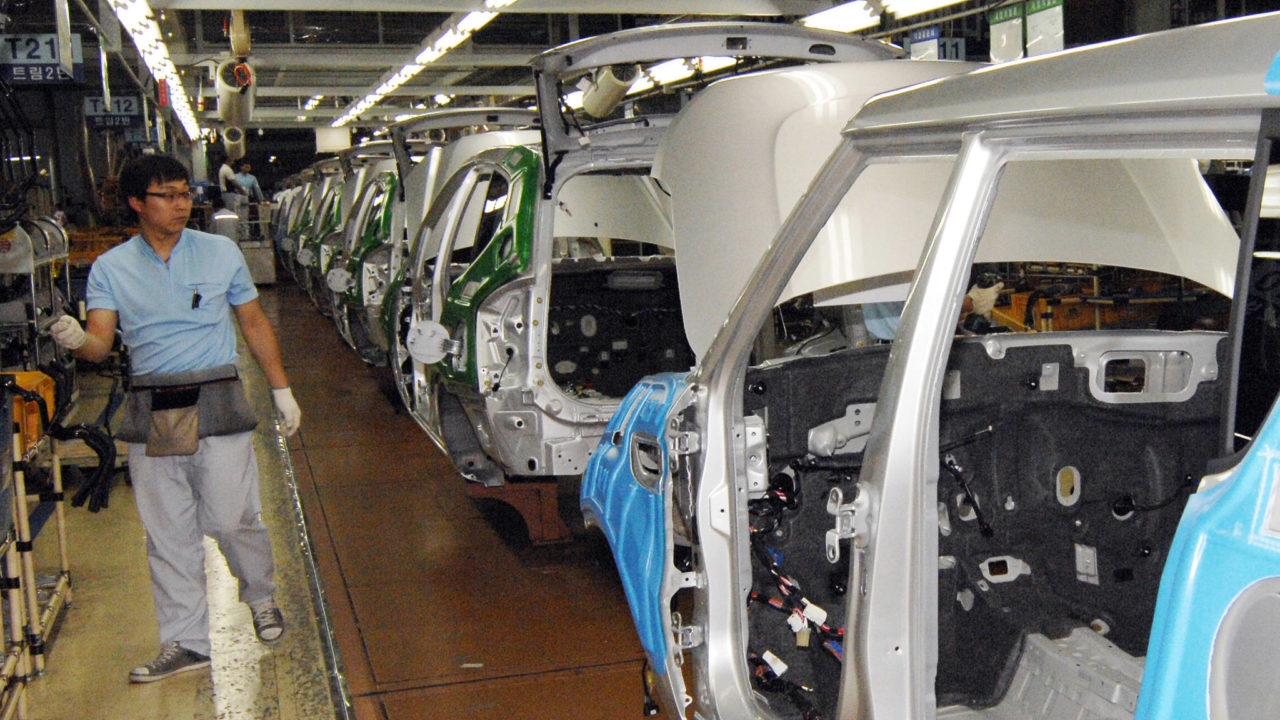

Hyundai Motor’s labor union voted in favor of a modest wage increase late on Thursday, settling pay negotiations before their summer vacation in August for the first time in eight years.
The speedy deal stands in stark contrast to last year, when a series of strikes and negotiations dragged on into early 2018.
The challenging business environment for Hyundai Motor, including threat of auto tariffs from the United States and slow global sales, is expected to have influenced the result.
Of the 42,046 union members, 63 percent voted in favor of the new wage plan on Thursday. The plan includes a monthly base pay raise of 45,000 won ($40.26), an incentive payment worth 250 percent of their ordinary monthly wage and a bonus of 2.8 million won.
Last year, the union had asked for 154,000 won more a month in base pay, but workers received a 58,000 won raise. It had asked for a 300 percent incentive rate as well.
The union on Thursday also approved a renewed two-shift working system, where day and night workers will work exactly eight hours without additional time. Previously, night-shift workers had to work about 20 minutes more than those on the day shift.
Starting Jan. 7, 2019, each assembly line will be adjusted to produce 0.5 more cars per hour in order to compensate for the reduced working hours.
Hyundai Motor’s labor union, which is affiliated with the umbrella Korea Metal Workers’ Union, is seen as one of the country’s most hard-line unions. Their fierce conflict with company management has faced criticism for not taking into account Hyundai’s business situations.
Fellow workers gave the Hyundai union a cold shoulder because of the steep discrepancy in wage rates. Unionized workers at the Hyundai Motor labor union receive an average of 90 million won. Average office workers at small and medium-size companies receive an average of 30 million won per year and conglomerate office workers receive around 60 million won. Last year, the union staged 24 strikes, which disrupted the production of 76,900 cars and caused losses worth 1.62 trillion won to Hyundai Motor. In 2016, their strikes caused the company to lose 3.1 trillion won.
This year, the union staged only 2 strikes, which disrupted the production of 11,487 cars, causing losses of just 250.2 billion won. These are the smallest losses since 2011, when there were no strikes at all.
“This will be a stepping stone [for the union] to break through its social isolation and perception that it is the ‘royal union,’” said Ha Bu-young, the leader of Hyundai Motor’s union, in a statement on Thursday.